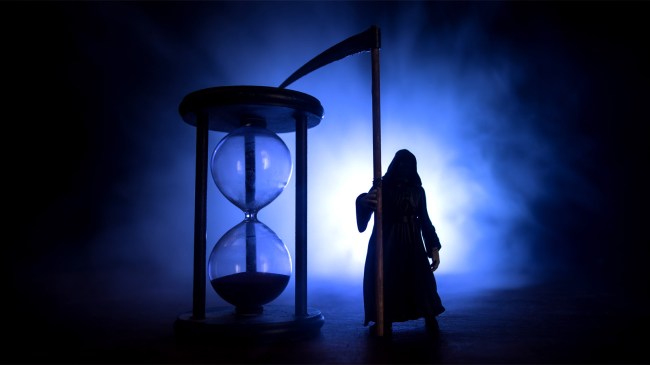iStockphoto
A new app called Death Clock uses artificial intelligence (AI) and longevity studies to predict the exact date and time of your death and what is most likely to kill you. On the plus side, it also provides tips on how to push that date further into the future.
The Death Clock app, which has 125,000 downloads and counting so far, uses an AI model that pulls data from 53 million participants of 1,200 life expectancy studies to make it macabre prediction.
The app asks its users questions related to things like gender, levels of stress, family health history, chronic health conditions, as well as eating, drinking, sleep, and exercise habits.
The Death Clock then calculates your date and time of death down to the second. Seriously. It produces a countdown timer to your death based on the data you enter.
If you want tips on how to extend your death date to sometime further in the future, The Death Clock sells memberships ranging from $39.99 to $79.99 that provides tips to lengthen your life.
Brent Franson, the app’s developer, claims his AI-powered Death Clock app is a “pretty significant” upgrade from the actuarial tables that pension funds, insurance companies and governments have used for decades. It could also be useful for individuals making decisions about things like retirement income and savings needs, life insurance coverage, and other forms of financial planning.
“A huge concern for elderly people, our retirees, is outliving their money,” financial planner Ryan Zabrowski told Bloomberg.
Franson took things a step further, saying, “There’s probably not a more important date in your life than the day that you’re going to die.”
Then again, if futurist Ray Kurzweil is right, humans will become immortal by the year 2030. Or at the very least, live up to 1,000 years through the use of biotechnology, AI, and nanobots.
If either of those things happen, The Death Clock app will become nothing more than a mere novelty.

